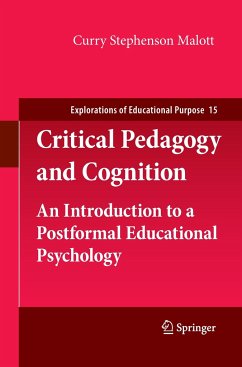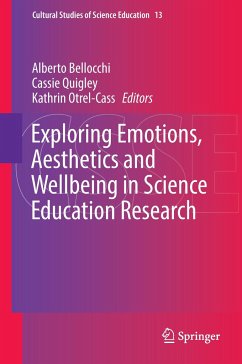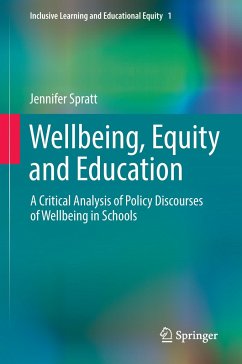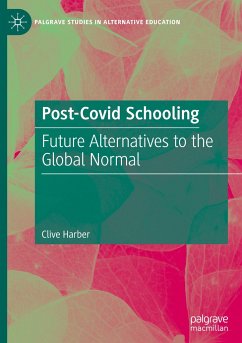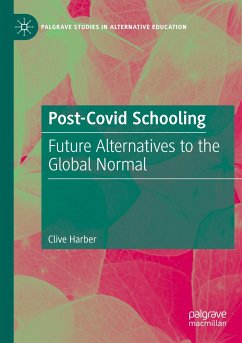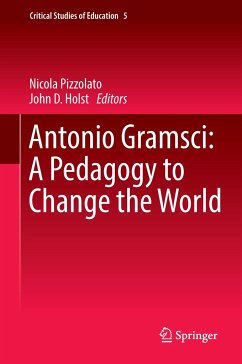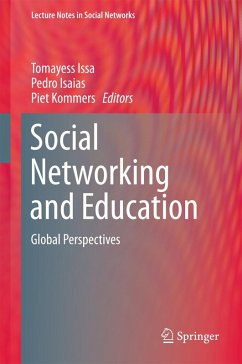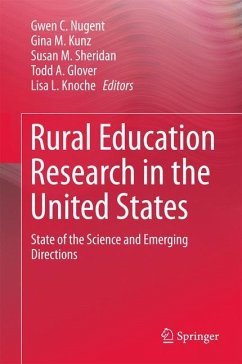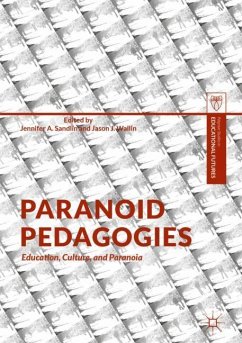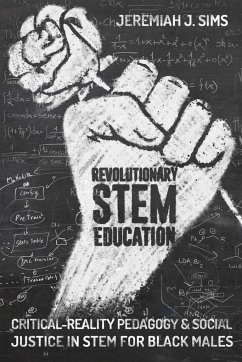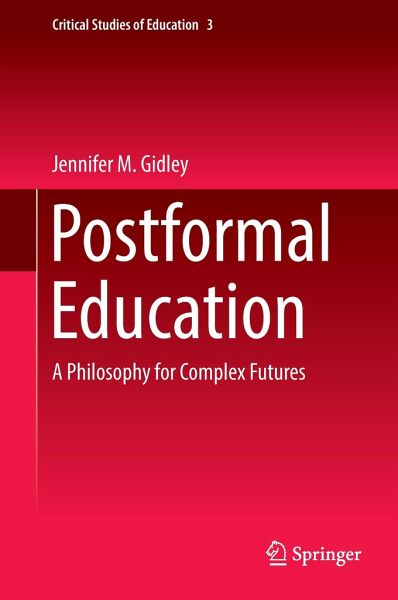
Postformal Education
A Philosophy for Complex Futures

PAYBACK Punkte
38 °P sammeln!
This book explains why the current education model, which was developed in the 19th century to meet the needs of industrial expansion, is obsolete. It points to the need for a new approach to education designed to prepare young people for global uncertainty, accelerating change and unprecedented complexity.The book offers a new educational philosophy to awaken the creative, big-picture and long-term thinking that will help equip students to face tomorrow's challenges. Inside, readers will find a dialogue between adult developmental psychology research on higher stages of reasoning and today's ...
This book explains why the current education model, which was developed in the 19th century to meet the needs of industrial expansion, is obsolete. It points to the need for a new approach to education designed to prepare young people for global uncertainty, accelerating change and unprecedented complexity.The book offers a new educational philosophy to awaken the creative, big-picture and long-term thinking that will help equip students to face tomorrow's challenges. Inside, readers will find a dialogue between adult developmental psychology research on higher stages of reasoning and today's most evolved education research and practice. This dialogue reveals surprising links between play and wisdom, imagination and ecology, holism and love. The overwhelming issues of global climate crisis, growing economic disparity and the youth mental health epidemic reveal how dramatically the current education model has failed students and educators. This book raises a planet-wide call to deeply question how we actually think and how we must educate. It articulates a postformal education philosophy as a foundation for educational futures.The book will appeal to educators, educational philosophers, pre-service teacher educators, educational and developmental psychologists and educational researchers, including postgraduates with an interest in transformational educational theories designed for the complexity of the 21st century.
This is the most compelling book on education I have read for many years. It has major implications for all who are in a position to influence developments in teacher education and educational policy. Gidley is one of the very rare scholars who can write intelligently and accessibly about the past, present and future in education. I was challenged and ultimately convinced by her contention that 'what masquerades as education today must be seen for what it is - an anachronistic relic of the industrial past'. Gidley's challenge is to 'co-evolve' a radically new education. All who seek to play a part must read this book.
Brian J. Caldwell, PhD, Educational Transformations, former Dean of Education at the University of Melbourne and Deputy Chair, Australian Curriculum, Assessment and Reporting Authority (ACARA)
This is the most compelling book on education I have read for many years. It has major implications for all who are in a position to influence developments in teacher education and educational policy. Gidley is one of the very rare scholars who can write intelligently and accessibly about the past, present and future in education. I was challenged and ultimately convinced by her contention that 'what masquerades as education today must be seen for what it is - an anachronistic relic of the industrial past'. Gidley's challenge is to 'co-evolve' a radically new education. All who seek to play a part must read this book.
Brian J. Caldwell, PhD, Educational Transformations, former Dean of Education at the University of Melbourne and Deputy Chair, Australian Curriculum, Assessment and Reporting Authority (ACARA)





